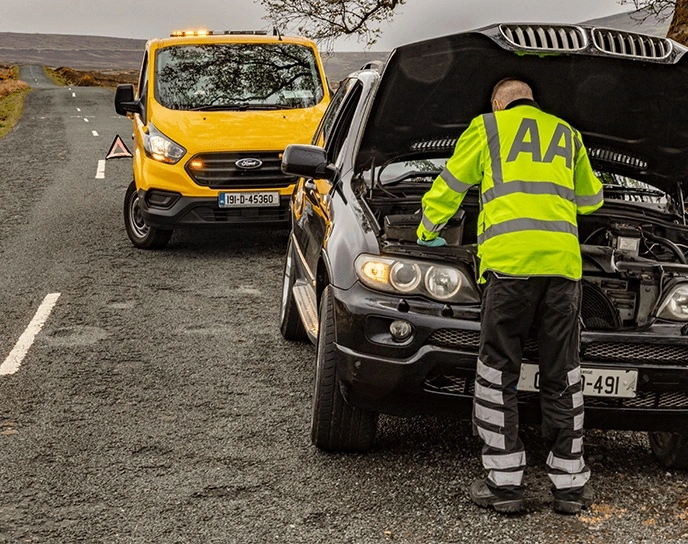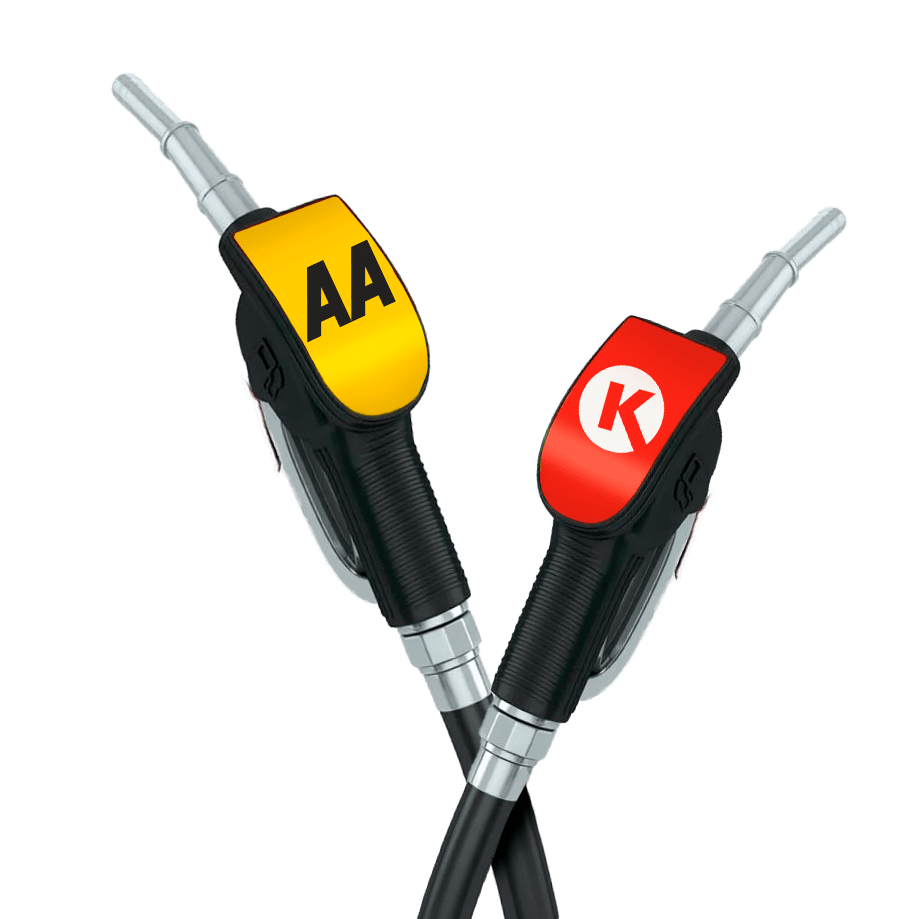Get exclusive access to rewards like up to 6c off every litre of fuel at select Circle K garages nationwide or you can also get 10% off AA Home Insurance.
Car Insurance Quotes with The AA
Get 3 Months Free Car Insurance!*
Ireland’s most competitive Car Insurance Broker^
AA Car Insurance Features and Benefits 🚘
Protecting what’s precious. With AA, Car Insurance is personal. Whether you’re a new customer or existing AA member, you’re open to a host of benefits that are hard to find elsewhere. From unlimited windscreen repair through AA-approved repairers, to driving other cars comprehensive as standard.
A claim for windscreen cover is provided where we will pay the cost* of replacing or repairing broken or damaged windscreens & windows, along with scratches to bodywork from broken windows.
We also help in the unfortunate event of a fire in the car or if personal belongings (up to €500) are stolen/damaged during theft or attempted theft.
* Limited to €225 where the claim is not processed through the AAI Approved Repairer.
With our best level of cover, AA customers with a full license get comprehensive car insurance.
This means you’re covered to drive other cars, even one that’s borrowed, so you can get behind the wheel, safe in the knowledge you’re looked after.*
Personal Accident cover up to €75,000
If there’s been an accident, attempted break-in, or theft, The AA can cover you
up to €750** when personal belongings like sat nav equipment & mobile phones are lost or damaged.
If you’ve been claims-free for five years, you can receive a 50% No Claims Discount on your car insurance policy!
And remember, some policies will still allow you to make claims on things like fire, theft or misfuelling without it affecting your discount.
We can provide legal expenses cover up to €50,000 to help with the likes of Solicitors fees or associated expenses, where warranted.**
Whether you’re on a driving holiday in Andorra, Denmark, Italy or Spain, AA car insurance can provide full cover on your insured car in over 30 countries, for up to 60 days.**
Find The Right Car Insurance Policy For You!
Getting a quote for your insurance shouldn’t be complicated.
Keep your car insurance costs down by choosing the right level of cover with the AA. Across Comprehensive & Third-party, we can offer multiple types of cover to support all our members, with options tailored to what you need!
Comprehensive Car Insurance Cover
When you want full covers, our comprehensive car insurance policy is hard to beat,
As the highest level of cover we offer, it makes sure you and your car enjoy the greatest level of protection. This level of cover supports our members with additional peace of mind on the road.
Third Party Fire and Theft
When you need a basic level of cover, AA Third-Party Fire and Theft is ideal. Helping those who are new on the roads, who drive very little or have older cars, this level of cover could be just what’s needed.
To learn more, our guide to comprehensive car insurance cover and third-party fire and theft can help you choose the right level of car insurance for you.
Young Driver Car Insurance


Young Driver Car Insurance
Our young driver car insurance offers affordable cover for new drivers between the ages of 17 and 24, giving young drivers a balance between a great level of cover and value for money. AA insured young drivers can also enjoy the benefits of AA fuel savings and free roadside rescue.
Read moreVan Insurance
We compare van insurance quotes with 7 of Ireland’s leading van insurers making sure you find the right level of cover for you. Get your quote for van insurance online before the 31st August 2023 and enjoy savings of up to 75 euros a month.


AA Roadside Rescue


AA Roadside Rescue
We are the largest breakdown assistance company in Ireland with over 110 years of experience in providing nationwide breakdown assistance. Our team of experienced mechanics provides a 24/7 service fixing up to 80% of breakdowns on the roadside. Give yourself the extra peace of mind and start enjoying our great member’s benefits.
Read morePeace of mind, as standard 👌


Peace of mind, as standard 👌
For over 100 years, the AA has provided Roadside Rescue on Irish roads.
Buying a car? Use Car History Check to ensure that the used car you’re considering buying has a clean record.
Rated ‘Great’ by our customers on our latest review. You’re in good hands.
Car Insurance Frequently Asked Questions (FAQ) ✨
You’ll be choosing between Comprehensive & Third-Party Car Insurance. Typically, new drivers will opt for third-party, although it depends on the driver’s needs. That’s why it is important to get a quote and see.
We know that the cost of insurance for new drivers can be alarming. That’s why we tailor policies around young drivers to give a fair price.
It will vary from policy to policy, but many third party insurance policies won’t cover the likes of accidental damage, personal accidents and personal belongings. Always have the idea that Third Party mean “excluding me”.
A no claim discount is a reward for not making a claim on your motor insurance policy. Each year the discount on your renewal premium increases.
If you do make a claim, your discount will normally be less at the next renewal if your car insurance company cannot get their money back from the person responsible.
Yes, you can pay an additional premium to protect your no claim discount. Depending on your insurer, you can usually make two ‘fault’ claims in a 3- or 5-year period without affecting your no claim discount.
If you need to make a claim, do as soon as possible by following these steps & calling AA Claims Assist on 0818 467 101.
Yes, our comprehensive policy allows you to drive other vehicles with third-party cover, unless it’s specifically excluded by your insurer. If this is excluded, we’ll state this when you get a quote. If you’ve already bought car insurance from us, check your certificate of insurance. The conditions that apply to this benefit are in your Car Insurance Policy Booklet.
We provide cover for drivers who are aged between 18 and 99.
When you get a quote online, confirm that you are an AA Member. You could get a discount when you insure your car with us for the first time, and on subsequent renewals if you remain an AA Member.
Most insurers will never cover breakdowns, but you can get roadside assistance if you have an AA membership. Existing members also benefit from increased discounts when applying for AA car insurance.
*Online discount applies to new motor insurance policies purchased online only. Maximum discount value of €250 incl. fee & commission write off applies. Offer is based on a single upfront annual payment which equates to cover from just €6 a week. Subject to a minimum premium of €306.02. Price is based on a 51-year-old driving a 2013 Volkswagen Golf 1.4 Litre with Comprehensive Cover, Full bonus protection, living in Dublin 8 with a full Irish licence & full no claims bonus and an insured spouse as at August 2023.
^Based on recent market research carried out by Consumer Intelligence in July 2023, across a range of leading insurance providers and across 550 risk categories, The AA were ranked number one Car Insurance Broker in Ireland when it comes to competitive prices.
**Acceptance criteria, terms and conditions apply. Only available on AA common product policies (AXA, Allianz, Aviva and RSA). Please see cover summary for more details on AA common product and AA Liberty.














